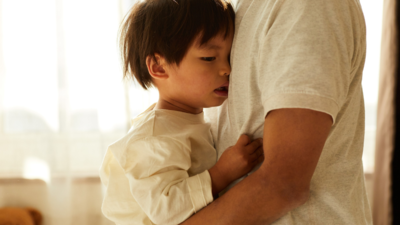Trending
Can being your child’s soulmate do more harm than good?
Modern parenting, known as 'soulmate parenting', involves parents forming deep emotional bonds with children by meeting their emotional needs and encouraging self-expression. While this approach fosters emotional security, experts warn it could impede a child's independence if boundaries are not maintained.
Modern parenting has changed significantly in terms of how a child expresses emotions, with dads actively embracing motherhood alongside moms. This has led to the emergence of the idea of "soulmate parenting." In order to forge a stronger emotional bond with their child, parents tend to take up a variety of roles in this method; nevertheless, experts warn that becoming overly involved could inadvertently damage the parent-child bond and so more harm than good.
The idea of soulmate parenting
In this parenting style, the parent serves as the child's best friend, offering trust and companionship. Most parents are in line with recognizing and meeting the child's emotional and developmental needs. Parents fall into many roles, like being a cheerleader, supplying support and inspiration and a sympathetic listener, understanding the child's feelings without passing judgment.
Popularity among new-age parents
Today's parents are increasingly conscious of encouraging their child's uniqueness and self-expression. Since soulmate parenting is in line with the growing emphasis on emotional intelligence and open communication in relationships, it is becoming more and more popular among the new-age parents. In addition to creating close relationships, soulmate parenting aims to equip kids with self-awareness. This strategy can create a supportive atmosphere that is counterbalanced with sensible restrictions.
This parenting style is also seen to be a reaction to the increasing difficulties that kids encounter, like mental health disorders and social pressures, which new-age parents, including millennials and Gen Z, lacked to get from their parents. This realisation has led parents to become more involved and supportive.

Principles of soulmate parenting
The goal of Millenials and Gen Z parents is to create a loving atmosphere where kids may freely express their ideas, anxieties, and goals without worrying about being judged. Therefore, in most cases, soulmate parenting improves the relationship between parents and children.
This method has several advantages, such as increased resilience and self-worth, better emotional security, a balanced, healthy relationship where the child feels loved and understood, and a deeper understanding of the child's needs and feelings. Strong coping mechanisms, stable bonds, and empathy are more common among kids brought up in such a loving environment.
Risks of soulmate parenting
Soulmate parenting creates deep emotional ties, but if boundaries are not upheld, it can be dangerous.
A child's independence may be hampered by over-involvement, and their resilience may be weakened by a reliance on parental approval.
While overprotection can lead to overdependence, blurring boundaries can result in a loss of parental authority.
Burnout can also affect parents because it is exhausting to be emotionally involved all the time.
Furthermore, the youngster may develop irrational expectations as a result of this parenting approach, making them unequipped to handle the parent's absence.
A careful balance is necessary since being too forgiving or insufficiently powerful can lead to problems with accountability, discipline, and boundary respect.
Importance of balance
Boundaries and structure should be combined with soulmate parenting in order to preserve authority to encourage discipline and healthy independence in children while simultaneously fostering emotional connection and resilience.
End of Article
FOLLOW US ON SOCIAL MEDIA
Visual Stories
Tired of too many ads?go ad free now












